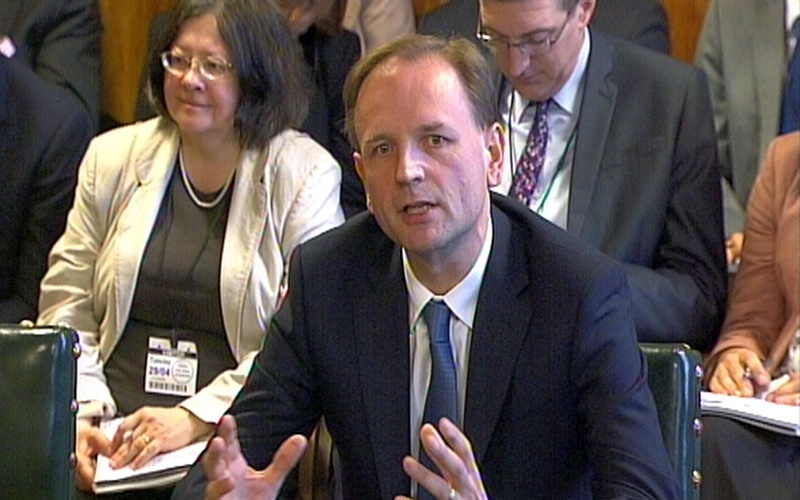21.01.15
CCG inconsistencies in how they try to avoid conflicts of interest
A fifth of CCGs have required more than half of their board members to withdraw from a meeting because of conflicts of interest, an NHE investigation has revealed.
After receiving 174 responses to Freedom of Information requests to all 211 CCGs, NHE found that 16% of them (27) have experienced the scenario at least once.
Birmingham CrossCity CCG, which merged with North East Birmingham CCG to become the fourth-largest CCG in the country, covering 117 practices, was the worst affected with six incidents. GPs removed themselves from the meetings, as per the constitution, on topics relating to a Local Enhanced Services (LES) review, the re-design of anticoagulation services and the business case for the ACE Excellence Diabetes scheme.
A spokesperson from Birmingham CrossCity CCG told NHE: "Birmingham CrossCity CCG has a robust policy in place to manage potential conflicts of interest so that decisions made by the group are taken openly and transparently, without any possibility of the influence of external or private interests. If in doubt, the member concerned should assume that a potential conflict exists.
“There were six instances in an 18-month period when the GP members of the Governing Body left the meeting. One of the lay members took the chair and on each occasion, we were able to continue with the discussion and progress the matter.
“The instances all related to a new programme of improvement for member practices, Aspiring to Clinical Excellence (ACE), which aims to ensure that patients have access to the same high quality primary care services across the CCG area. We have seen significant benefits to patients since the ACE programme was first introduced in May 2013.”
CCGs formally replaced Primary Care Trusts in April 2013 as the commissioners of most services funded by the NHS in England. They now control about two-thirds of the NHS budget and have a legal duty to support quality improvement in general practice.
However, the concerns over conflicts of interest have been raised throughout the industry and politically.
Last year, for instance, during a Public Accounts Committee (PAC) evidence session on GP out-of-hours services, NHS England boss Simon Stevens (pictured) agreed with the MPs when asked whether the relationship between commissioners and contract providers was “too close”.
 This referred to a case study by the National Audit Office revealing that eight members of Barnet CCG were also shareholders in Barndoc Ltd – the out-of-hours service provider. That contract also covered Enfield and Haringey, and it was revealed that four members of Enfield CCG were shareholders in Barndoc Ltd, and one of them was the medical director. In Haringey, one member of the CCG and her husband hold shares in the company.
This referred to a case study by the National Audit Office revealing that eight members of Barnet CCG were also shareholders in Barndoc Ltd – the out-of-hours service provider. That contract also covered Enfield and Haringey, and it was revealed that four members of Enfield CCG were shareholders in Barndoc Ltd, and one of them was the medical director. In Haringey, one member of the CCG and her husband hold shares in the company.
All three CCGs said “no governing body member associated with a provider is involved in meetings or decisions about that provider”.
But PAC chair Margaret Hodge said: “We have a theoretical separation between the commissioner and the provider [but] actually an incredibly incestuous relationship – yet another – between them. That may be an extreme example, I don’t know; it is the one I looked at. With those really dangerous conflicts of interests, how can they be managed in the interests of the taxpayer or the patient?”
Dame Barbara Hakin, national director of commissioning operations at NHS England, was asked if she knew how often the ‘Barnet-Haringey’ situation happens. She said: “As part of this year’s assurance process the area team will specifically ask CCGs how they manage conflicts of interest – we will know how they are dealing with conflicts of interest if they have them – and also triangulating the other pieces of information that they will have, such as patient satisfaction and what is happening with the national quality requirements, to make sure that however the contract is awarded, the patients are getting good service and the quality is high.”
Constitutions
There must always be ‘alternative arrangements’ when too many commissioners have a potential conflict of interest. Early guidance was that the local area team could award the contract, or another CCG would make the decision and the award instead.
Constitutional guidance from NHS England noted that where more than 50% of those at a CCG meeting have to withdraw because of conflicts (or potential conflicts) of interest, the chair (or deputy) will decide whether the meeting can proceed.
This would depend whether the meeting is quorate, as set out in the standing orders. A non-quorate meeting would require the chair to decide on alternative arrangements – moving forward by inviting other qualified people (such as someone from a CCG sub-committee, Health and Wellbeing Board or a member of a governing body of another CCG) to progress the item of business.
At NHS Doncaster CCG, more than 50% of the governing body had to withdraw twice, both relating to decision-making on unplanned care procurement.
“On both occasions the conflicted parties left the room, and in line with our constitution and because the meeting remained quorate even after the departure of the conflicted parties, the remaining members of the governing body made the decision,” NHE was told.
At NHS South Kent Coast CCG (SKC CCG), on the one occasion where the scenario occurred, a paper on GP Supplementary Services was not discussed.
Conflicts included direct financial interest and those of loyalty, particularly for local GPs, who could therefore not take part in the process.
The SKC CCG constitution requires at least a third of members (and a minimum of two GPs, two lay members and either the chief finance officer and/or accountable officer) to make decisions.
Because the governing body GP members could not take part, the CCG tried to get GPs from other CCGs to take part.
NHE was told: “Unfortunately, SKC CCG was unable to secure two GPs to attend the meeting. Therefore the item was withdrawn and would be discussed at an extraordinary meeting, which would be open for the public to attend.”
Co-commissioning
Primary care co-commissioning raises obvious and unavoidable potential for conflicts of interest. But in the information provided to NHE, we found that while many CCGs noted a conflict of interest when discussing primary care co-commissioning, very few people withdrew from meetings about it.
When it was discussed at NHS Greater Huddersfield CCG, the GPs present had to record a direct financial interest – but the chief officer agreed that GPs should stay in the room to ensure there was clinical input into the discussion if required.
However, at the same CCG, which makes more effort than most to be transparent, GPs did note conflicts of interest and left meetings when discussing the provision of multi-morbidity clinics, long-term condition services and dementia services.
To try to tackle ‘potential’ and ‘actual’ conflicts of interest when CCGs get more involved in commissioning primary care services, NHS England published new guidance in December 2014. It says CCGs dealing with primary care, either under joint commissioning or delegated commissioning arrangements, must maintain one or more publicly-accessible registers of interest.
It includes a ‘strengthened approach’ to conflicts of interest, requiring CCGs ensure individuals declare any conflict or potential conflict as soon as they become aware of it, and always within 28 days.
The register will be an obligatory part of the annual accounts and has to be signed off by external auditors. Someone from the local Healthwatch and a councillor from the local Health and Wellbeing Board also have the right to serve as observers on the decision-making committee.
The decision-making committee must have a lay and executive member majority.
‘Fair, transparent and value for money’
A spokesperson for NHS England told NHE: “CCGs manage conflicts of interest as part of their daily business – this is crucial in ensuring that health commissioning decisions are fair, transparent and provide value for money. It is important that patients, taxpayers, Parliament, healthcare providers and regulators are assured of this.
“It is vital that any risks are managed effectively, which is why we have worked with stakeholders to provide strengthened guidance on managing conflicts of interest.”
NHS Clinical Commissioners (NHSCC) recently worked with the RCGP and BMA to develop shared principles to support and guide CCGs in managing perceived or actual conflicts of interests when co-commissioning primary care.
NHSCC, the membership organisation for CCGs, also told NHE that our figures, even on those rare occasions when 50% of the members of governing bodies withdrew, show that the organisations are finding ways to make sure they are still doing business and making procurement decisions in the right way – and transparently.
Primary care co-commissioning has the potential to benefit patient care, it added, but it also creates perceived and actual conflicts of interest when CCGs are procuring services from their member practices.
If these issues are not tackled early on, they could limit a commissioner’s abilities to develop and deliver new models of care for the benefits of patients and their local populations.
 Ruth Robertson, fellow in health policy at the King’s Fund, said the new responsibilities shine a light once again on an issue that has plagued CCGs since their inception – the conflict of interest faced by GPs who are buying services from themselves and potentially managing their own contracts.
Ruth Robertson, fellow in health policy at the King’s Fund, said the new responsibilities shine a light once again on an issue that has plagued CCGs since their inception – the conflict of interest faced by GPs who are buying services from themselves and potentially managing their own contracts.
“CCGs looking to take on greater responsibility for commissioning primary care services would be wise to look back on the experience of GP fund-holding,” she said in a blogpost last year. “That experiment in GP-led commissioning in the 1990s was undermined at least partly by public outrage at claims of GPs lining their own pockets. CCGs must demonstrate that they have clear, robust governance processes in place that show NHS spending decisions have not been influenced by vested interests, to avoid challenges from providers and the public.”
But Dr Amanda Doyle (pictured), co-chair of NHSCC and chief clinical officer for NHS Blackpool CCG, told NHE: “Our members recognise that potential conflicts of interest will occur when CCGs commission primary care, but they are manageable.
“As long as CCGs are working to their strategic commissioning plans and have the recommended checks and balances in place when they procure services, then the rationale for what and how they are commissioning from member practices will withstand scrutiny.”
By David Stevenson
Tell us what you think – have your say below or email [email protected]